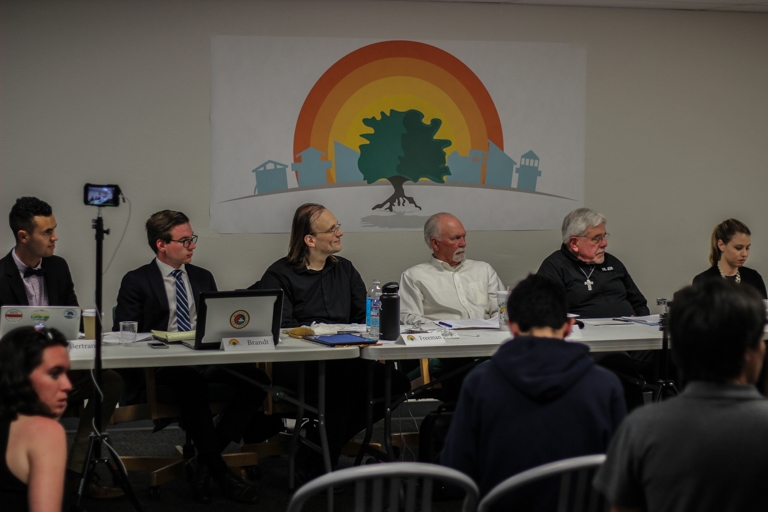Local governments are closely monitoring a state Supreme Court ruling that could allow governing officials to bypass voters when implementing taxes.

Jose Ochoa / Daily Nexus
As the Nexus reported in September, I.V. Community Services District (CSD) legal counsel Ross G. Trindle told the board on Sept. 12 that the California Supreme Court’s ruling in the California Cannabis Coalition v. City of Upland case could be interpreted to allow citizens to bring a tax to the board.
Tim Bittle, director of legal affairs for the Howard Jarvis Taxpayers Association and representative for representing Upland in the case, said his group filed a petition in Sept. to make sure the court’s decision did not “open the door to abuse” from local governments, considering how “confusing” the court’s opinion is.
As of Tuesday night, the California Supreme Court has not clarified its decision. The deadline to respond to Bittle’s group is Nov. 26.
If the court agrees with Trindle’s assessment, local governments would be able to bypass the two-thirds requirement for special taxes. For this to happen, citizens must create an ordinance, gather 10 percent of voters’ signatures and bring the proposal to the county for approval.
If the county approves it, governments would either vote on the tax at a board meeting or an election with a smaller majority than normally required.
Legal experts are skeptical whether the court’s current ruling allows governments to leave some voters out of the decision-making process.
The majority of I.V. Community Services District (CSD) board members have rejected the possible use of this legal quirk to pass a tax.
George Thurlow, a board member, told the Nexus that he cannot take a position on the tax because of his position as both a UCSB employee and an elected official. He added that he has recused himself at every opportunity to discuss the tax.
Directors Ethan Bertrand, Spencer Brandt, Jay Freeman, Bob Geis, Father Jon-Stephen Hedges and Natalie Jordan have all said they disapprove of passing the tax through a vote of the board. Brandt called it “a very clear no.”
Director Geis said he is in favor of a user utility tax, but it is not an issue for seven people to determine. He said that “if it’s not the will of the voters,” they would be very displeased with such a decision.
“I would say that we would want to, in any circumstances, bring it to the voters,” Geis said.
In a third-party assessment of the case, the League of California Cities said local tax measures proposed by citizens should be open to the same requirements as those proposed by a local government. The group provided their review of the case to the courts in October of last year.
The group recommended that cities in similar situations should “consult with their city attorney” due to the “lack of clarity” in the court’s decision.
Legal experts in the county are currently keeping an eye on the issue but have yet to analyze it in detail due to its tentative nature.
Mike Ghizzoni, legal counsel for the county of Santa Barbara, said he has read the case and is monitoring it but will not provide analysis until the petition has been granted or denied and the case is finalized.
















